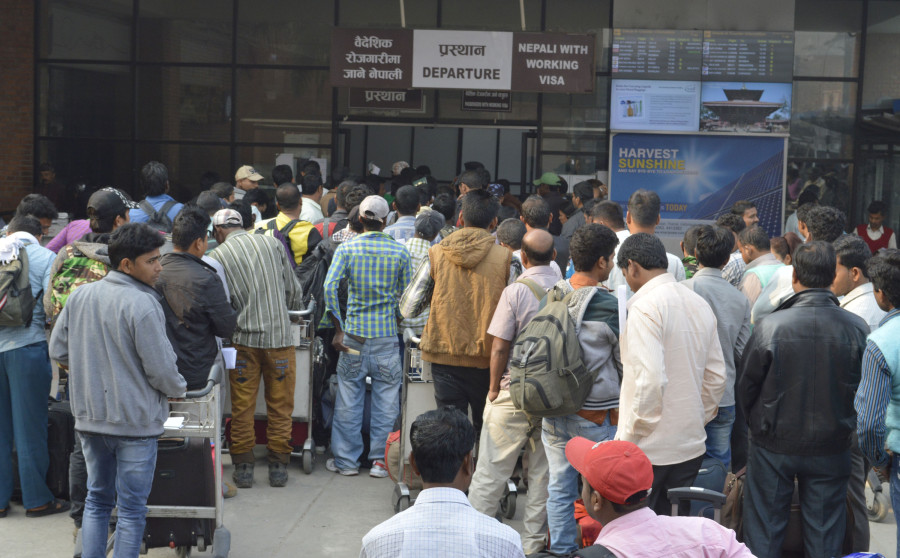National
Hundreds of migrant workers, including from Nepal, on strike after Qatari employer refuses to issue them ID cards
Nepali workers say they are afraid to go out, fearing arrest and immediate deportation.
Chandan Kumar Mandal
Hundreds of migrant workers from Nepal, Bangladesh, Pakistan and India in Doha, Qatar, have been protesting for the last one week, demanding their identity cards.
The workers of various companies under the Bandary International Group have been on strike since August 21, as their employers have not issued them ID cards, which all foreign nationals must possess.
“Most of the workers are without identity cards for months now,” a Nepali worker from Dhanusha told the Post over the phone. “Without ID cards, we can do almost nothing here.”
The repeated calls of the workers for ID cards have not been addressed for months now. The workers resorted to strike after Doha police arrested nearly 120 workers, most of them believed to be from Nepal.
While some have been released, there is no information on the others. They were reportedly detained while returning from their work.
According to the Nepali worker, Bandary International, a leading engineering and contracting firm, has nearly 8,000 Nepali workers.
Without valid ID cards, these workers cannot go out and are confined to their camps when they are not working. Police can detain them if found outside without valid identity documents.
“I got my ID card nearly a year after landing in Qatar. But it has not been renewed for the last nine months,” said another Nepali worker from Siraha. “When I was new here, without the ID card, I had no option than to stay inside the room. I could not see my friends because I could have been arrested.”
As Qatari employers continue to seize the passports of migrant workers, ID cards are the only documents that allow workers to walk freely. Failing to produce the paper at the time of random checking by local police could mean deportation.
“We have to be on our guard, always, even while visiting a nearby shop to buy rations. The moment we are caught, we could be sent back without our belongings,” said the worker from Siraha.
The exploitation of migrant workers in Gulf countries, including Qatar, is not a new phenomenon. For workers of foreign origins, seizure of documents, non-payment or irregular salaries, living and working under pitiable conditions have been something they have been putting up with years.
Nearly three weeks ago, when the Gulf nation witnessed a rare protest from its construction sector migrant workers, Nepali workers also took part in the protest complaining about continued inhuman treatments in the gas-rich nation
Workers have not been able to send money back home, nor have they been able to access medical facilities without ID cards.
“For the medical card, we need an ID card. Without the ID card, one can’t be admitted to the hospital even in case of an accident,” said the worker from Dhanusha who works as an air-conditioning installer.
Workers have complained about the problems they faced without valid identity documents in the past as well. But their cry of grievance was usually silenced by issuing ID cards to a handful of workers.
This time, though, things are different. The company’s work has been completely suspended. Workers from all three camps— Saheliya, Shahaniya and Al Khor—have not reported to work after the matter escalated with the arrest of their colleagues on the evening of August 20.
The workers have remained inside their camps and organising peaceful protests on a daily basis. Protest inside the camp has become a regular evening affair, according to Nepali workers. A video obtained by the Post shows workers shouting slogans against the company.
“Just like in the past, the company’s management staff had come with ID cards for a few workers and promised to issue cards to other workers as well. But we didn’t accept their offer,” said the worker .“This is the decisive battle for us all. We want ID cards, or we won’t work.”




 20.12°C Kathmandu
20.12°C Kathmandu














